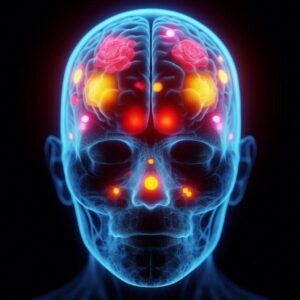 Meditation For Anxiety Attacks: A Comprehensive Guide
Meditation For Anxiety Attacks: A Comprehensive Guide
Anxiety attacks, often characterized by intense fear and physical symptoms such as a racing heart and shortness of breath, can be overwhelming and debilitating. However, meditation has been increasingly recognized as a valuable tool for managing these attacks. This practice can help individuals regain control, reduce stress, and foster a sense of calm. This article explores the types of meditation that can help with anxiety, their benefits, and practical steps to incorporate meditation into daily life.
Types of Meditation for Anxiety

Mindfulness Meditation
Mindfulness meditation involves focusing on the present moment and observing thoughts and sensations without judgment. This practice helps reduce the intensity of anxiety by promoting a non-reactive state of mind. According to a study published in the Journal of Clinical Psychology, mindfulness meditation can significantly reduce anxiety symptoms and improve overall well-being. By cultivating awareness and acceptance of the present moment, individuals can break the cycle of anxiety and reduce the power of negative thoughts.
Guided Meditation
Guided meditation involves listening to a guide who provides instructions and imagery to help redirect the mind away from anxiety-provoking thoughts. This structured approach can be particularly beneficial for beginners. A study in the Journal of Anxiety Disorders found that guided meditation can effectively reduce anxiety and enhance emotional regulation. Using apps or online resources, individuals can access a variety of guided meditation sessions tailored to different needs and preferences.
Stop Anxiety Attacks DEAD in Their Tracks with This MIND-BLOWING Audio
Deep Breathing Meditation
Deep breathing meditation focuses on slow, controlled breathing, which can slow the heart rate and promote relaxation. This type of meditation counteracts the physical symptoms of anxiety. Research from Harvard Medical School highlights that deep breathing exercises can activate the body’s relaxation response, reducing stress and anxiety. By practicing deep breathing regularly, individuals can develop a powerful tool to manage anxiety attacks and improve overall respiratory health.
Body Scan Meditation
Body scan meditation involves mentally scanning the body from head to toe, bringing awareness to any areas of tension or discomfort. This practice promotes relaxation and helps individuals become more attuned to their physical state. According to research published in Frontiers in Psychology, body scan meditation can reduce anxiety and improve mindfulness, making it a valuable addition to any anxiety management toolkit.
Benefits of Meditation for Anxiety

Reduced Symptoms
Regular meditation practice has been shown to lower the frequency and intensity of anxiety attacks. A meta-analysis published in JAMA Internal Medicine found that meditation programs can improve anxiety, depression, and pain, supporting the use of meditation as a complementary therapy for anxiety attacks. By integrating meditation into their daily routine, individuals can experience significant improvements in their mental health and quality of life.
Improved Emotional Regulation
Meditation enhances emotional awareness and regulation, making it easier to manage anxiety triggers. A study from the University of California, Los Angeles, found that mindfulness meditation can improve emotional regulation and decrease reactivity to stressors, which is crucial for managing anxiety attacks. By practicing mindfulness, individuals can develop a greater understanding of their emotional responses and learn to navigate stressful situations with greater ease.
Enhanced Relaxation Response
Meditation activates the body’s relaxation response, reducing the physiological symptoms associated with anxiety attacks. According to a report by the American Psychological Association, the relaxation response can help lower blood pressure, heart rate, and stress hormone levels, all of which are beneficial in managing anxiety. Regular meditation can improve physical health and a greater sense of overall well-being.
Increased Self-Awareness
Meditation fosters self-awareness by encouraging individuals to observe their thoughts and feelings without judgment. This increased awareness can help identify patterns and triggers of anxiety, enabling more effective management strategies. A study published in the Journal of Counseling Psychology found that self-awareness gained through meditation can lead to better-coping mechanisms and reduced anxiety levels.
Better Sleep Quality
Improved sleep is another significant benefit of regular meditation practice. Anxiety often disrupts sleep patterns, leading to insomnia and other sleep-related issues. A study in the Journal of Sleep Research found that mindfulness meditation can improve sleep quality and reduce insomnia symptoms, which in turn can alleviate anxiety symptoms. By promoting relaxation and reducing stress, meditation can help individuals achieve more restful and restorative sleep.
✨Unlock Inner Peace & CRUSH Anxiety with This Hypnotic Audio Experience✨
How to Practice Meditation for Anxiety
Find a Quiet Space
Choose a comfortable and quiet location where you won’t be disturbed. This helps create a conducive environment for relaxation and focus. Whether it’s a dedicated meditation room or a quiet corner of your home, having a consistent space for meditation can enhance your practice.
Set a Timer
Start with short sessions (5-10 minutes) and gradually increase the duration as you become more comfortable. Using a timer can help you stay focused without worrying about the time. There are numerous apps and devices available that can assist with timing and tracking your meditation sessions.
Focus on Your Breath
Pay attention to your breathing, noticing the sensation of air entering and leaving your body. This simple act of focusing can help anchor your mind and reduce anxiety. Techniques such as the 4-7-8 breathing method, where you inhale for four seconds, hold for seven seconds, and exhale for eight seconds, can be particularly effective.
Observe Your Thoughts
If your mind wanders, gently bring your focus back to your breath without judgment. This practice of observing thoughts without reacting to them is a key aspect of mindfulness. Over time, you’ll develop greater awareness of your thought patterns and learn to let go of negative or intrusive thoughts.
Use Guided Meditations
Utilize apps or online resources that offer guided meditations specifically for anxiety. Guided sessions can provide structure and support, especially for those new to meditation. Popular apps like Headspace, Calm, and Insight Timer offer a wide range of guided meditations tailored to different levels of experience and specific needs.
Incorporate Visualization
Visualization techniques can also be beneficial in reducing anxiety. This involves imagining a peaceful and calming scene, such as a beach or forest, to help distract the mind from anxiety-provoking thoughts. A study published in the Journal of Alternative and Complementary Medicine found that visualization can effectively reduce stress and improve mood.
Incorporating meditation into your daily routine can be a powerful way to manage and reduce anxiety attacks. By practicing regularly, you can develop a greater sense of calm and control over your anxiety. Whether through mindfulness, guided meditation, deep breathing, or body scan techniques, these practices offer valuable tools to enhance your well-being and improve your stress response. Remember to start small, be patient with yourself, and explore different methods to find what works best for you.
Meditation Anxiety and Panic Attacks
Meditation has emerged as a highly effective method for managing anxiety and panic attacks, offering a natural and accessible solution for those struggling with these conditions. According to the Anxiety and Depression Association of America, anxiety disorders are the most common mental illness in the U.S., affecting 40 million adults each year. Among these, panic attacks are a frequent and distressing symptom. Meditation practices, particularly mindfulness and deep breathing techniques, have been shown to significantly reduce the frequency and intensity of these episodes, providing a sense of control and peace for sufferers.
Mindfulness meditation, which focuses on staying present and observing thoughts without judgment, can be particularly beneficial for those experiencing anxiety and panic attacks. A study published in the Journal of Anxiety Disorders found that individuals who practiced mindfulness meditation reported a 30% reduction in anxiety symptoms after eight weeks of regular practice.
This technique encourages individuals to detach from their anxious thoughts and view them from a more objective perspective, thereby reducing their impact.
 Deep breathing exercises are another powerful tool in combating anxiety and panic attacks. These exercises help activate the body’s parasympathetic nervous system, which promotes relaxation and counters the fight-or-flight response triggered during panic attacks. Research from Harvard Medical School indicates that controlled deep breathing can lower stress hormone levels and heart rate, leading to a state of calm.
Deep breathing exercises are another powerful tool in combating anxiety and panic attacks. These exercises help activate the body’s parasympathetic nervous system, which promotes relaxation and counters the fight-or-flight response triggered during panic attacks. Research from Harvard Medical School indicates that controlled deep breathing can lower stress hormone levels and heart rate, leading to a state of calm.
Incorporating deep breathing into daily routines can provide immediate relief during an anxiety episode and improve overall stress resilience.
Guided meditation offers structured support for those new to meditation or struggling to maintain focus. Utilizing resources such as meditation apps or online videos can help guide individuals through the process, making it easier to achieve a relaxed state. According to a survey by the Journal of Medical Internet Research, users of meditation apps reported a 50% reduction in anxiety symptoms over three months. This approach combines the benefits of mindfulness and deep breathing with the added support of a guided voice, creating a comprehensive tool for managing anxiety and panic attacks.
In addition to these techniques, body scan meditation has also shown promise in alleviating anxiety. This practice involves mentally scanning the body from head to toe, noticing any areas of tension and consciously relaxing them. A study in Frontiers in Psychology found that body scan meditation significantly reduced anxiety and improved emotional regulation in participants. By becoming more attuned to their physical state, individuals can better manage the physical symptoms of anxiety and prevent them from escalating into panic attacks.
In conclusion, meditation offers a multi-faceted approach to managing anxiety and panic attacks. Whether through mindfulness, deep breathing, guided sessions, or body scans, these practices can provide significant relief and improve overall mental health. With regular practice, individuals can develop greater control over their anxiety and enjoy a higher quality of life. Given the high prevalence of anxiety disorders and the growing body of evidence supporting meditation, it is an essential tool for anyone looking to manage anxiety and panic attacks effectively.
References
- Calm. https://www.calm.com/
- Mindful. https://www.mindful.org/
- Verywell Mind. https://www.verywellmind.com/
- Charlie Health. https://www.charliehealth.com/


